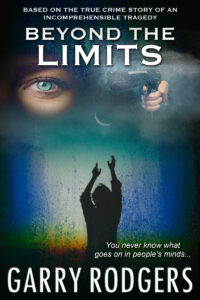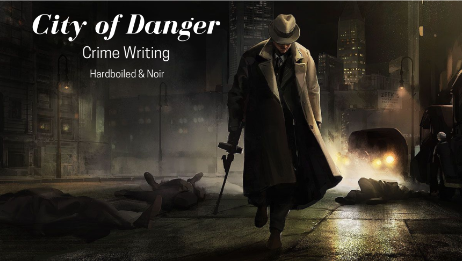“Your crime writing is dark. Very dark. Do you consider it noir? Hardboiled? How do you slot your sub-genre?”
A podcaster recently put this to me. I was stumped. I knew my stuff was tragic and gore, but I had no strong concept of what noir and hardboiled really were—although I’d heard the terms many times. I thought they were just for the marketing department, but I made it my mission to find out.
What’s old is new again, hardboiled and noir. That certainly seems the case in resurrecting old crime story classics. Look at the resurgence of Agatha Christie. Netflix writers now idolize Elmore Leonard as the dialogue man. Say the names Raymond Chandler, Dashiell Hammett, or Mickey Spillane, and you’ll find an old-style legion of fans ready to tear this book house down.
Women aren’t excluded from the Hardboiled &Noir Club. No, ma’am. Besides Dame Agatha (I kneel before her), there are Dorothy Sayers, Dorothy B. Hughes, Patricia Highsmith, and (still going) Sara Paretsky. In their footsteps today, we have Megan Abbott, Val McDermid, and the intriguing hardboiled/noir writer Christa Faust.
So what’s the difference between noir and hardboiled, if there is any? From what I’ve just read, I’d say hardboiled is dark and noir is much darker. Noir is the French word for black. The term “noir” is somewhat more recognized in film, where hardboiled (hard-boiled) is common to print.
Either way, each term has its tropes and sub-genre idiosyncrasies. At its core, noir is dark and grim. Noir is urban gothic—hopeless. Hardboiled is gritty and unsentimental. Hardboiled is more like an action movie with a character-driven plot where the protagonist triumphs as best as they can.
Megan Abbot is one smart lady. She’s considered one of today’s masters in noir and hardboiled. I read a fascinating interview with Ms. Abbott where she defined “hardboiled” vs “noir” crime fiction. Here’s her quote:
Hardboiled is distinct from noir, though they’re often used interchangeably. The common argument is that hardboiled novels are an extension of the wild west and pioneer narratives of the 19th century. The wilderness becomes the city, and the hero is somewhat of a fallen character, a detective or a cop. At the end, everything is a mess, people have died, but the hero has done the right thing, or close to it, and order, to a certain extent, has been restored. ‘Law and Order’ is a good example of modern hardboiled.
Noir is different. In noir, everyone is fallen, and right and wrong are not clearly defined and maybe not even attainable. In that sense, noir speaks to us powerfully right now when certain structures of authority no longer make sense. We wonder, ‘Why should we abide by them?’ Noir thrived in the 40s after the Great Depression and during the war. It was popular during Vietnam and Watergate and is on the rebound again. ‘Breaking Bad’ is a good noir example.
It’s hard to sum-up noir and hardboiled better than this. Maybe another quote adds to clearing the smoke-filled alleys. The protagonist in noir must himself (herself) be part of the scummy world. The protagonist in hardboiled is a white knight in a world of scum.
 Historically, hardboiled crime writing set itself on the perpetually-rainy, mean streets of American cities that were darkened by something more than night. Conventional tropes were the loner detective with a fedora and trench coat whose oak-desked, ceiling-fanned office operated in the low rent district. He looked out on the city of danger through Venetian blinds, chain-smoked, and was never far from a bottle of Scotch. The rebel gumshoe with a moral code spoke in nuanced dialogue saying “dames” for women, “gams” for legs, and “gat” for his gun.
Historically, hardboiled crime writing set itself on the perpetually-rainy, mean streets of American cities that were darkened by something more than night. Conventional tropes were the loner detective with a fedora and trench coat whose oak-desked, ceiling-fanned office operated in the low rent district. He looked out on the city of danger through Venetian blinds, chain-smoked, and was never far from a bottle of Scotch. The rebel gumshoe with a moral code spoke in nuanced dialogue saying “dames” for women, “gams” for legs, and “gat” for his gun.
Noir, on the other hand, sees little good in the world. Basically, everything and everyone is F’d. Noir crime writing examines psychological instability in people and their institutions. Being dangerously unstable is the key characteristic of noir protagonists. It might be a key characteristic of successful noir writers, too.
Examining noir and hardboiled isn’t complete without looking at these sub-genre’s origins. This isn’t a chicken-or-egg thing. It’s generally accepted that hardboiled came first and expanded into noir. Some may argue differently, and that’s what the comment section is for.
A hundred years ago, Brits were the kings and queens of crime fiction. Edgar Allen Poe paved the way for Agatha Christie and Arthur Conan Doyle to refine the cozy mystery genre. Here, scenes took place in confined trains and enclosed mansion libraries where the sleuth deducted the facts and announced the villain.
Americans, being the troublesome colonists they’ve always been, rebelled against criminally-correct plots and characters. America was shaped by an unregulated frontier that found its way to the roaring speakeasies of Chicago and the cold, cold heart of the Big Apple. Naturally, the North American public wanted a new brand of perpetrator and a hardboiled crime-fighter to match.
A Pinkerton detective shaped the hardboiled crime fiction world in the 1920s. Dashiell Hammett’s protagonist, Continental Operative, fought crime in the streets without sentimental emotion or official sanction. In 1923, Hammett teamed with a pulp magazine called Black Mask. This opened the door for hardboiled-cum-noir greats like Raymond Chandler with his Philip Marlowe character and Mickey Spillane with Mike Hammer.
Today, we have unique twenty-first-century hardboiled writers and characters. Michael Connelly has done well with Harry Bosch, to say the least. So has Lee Child with Jack Reacher.
And there’s a new girl on the block who writes about as dark and action-packed as you can get. Christa Faust has the chops to make her hardboiled noir, and she’s got the creds. Christa grew up riding subways and walking New York streets. She worked Times Square peep shows and practiced as a professional dominatrix. Now, Christa Faust is published by Hard Case Crime.
Yes, what’s old is new again. Hardboiled and noir are alive and well in crime writing city. That’s a good thing. And to answer the podcaster’s question, “How do you slot your sub-genre? Hardboiled or noir?” I have to say poached on the soft-runny side with a slice of dry, whole wheat toast. I’m an optimistic sort with a healthy infection of unorthodox attitude, and I’m not a psycho noir-person.
What about you Kill Zoners? Do you like your crime writing hardboiled or noir?
——
 Garry Rodgers is a retired cop and coroner. Now, he’s an indie crime writer whose personal experiences with the light and dark side of life find their way into the pages of his books. Garry is about to release the seventh publication in his twelve-part, based-on-true-crime series. Watch for Beyond The Limits on ePlatforms this month.
Garry Rodgers is a retired cop and coroner. Now, he’s an indie crime writer whose personal experiences with the light and dark side of life find their way into the pages of his books. Garry is about to release the seventh publication in his twelve-part, based-on-true-crime series. Watch for Beyond The Limits on ePlatforms this month.
Garry Rodgers lives on Vancouver Island at the Canadian west coast. He hosts a popular blog at DyingWords.net and occasionally checks his Twitter account @GarryRodgers1. Garry’s Amazon Author Page is open 24/7 as well.


